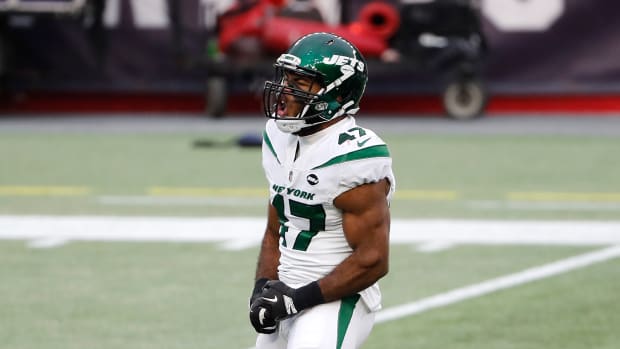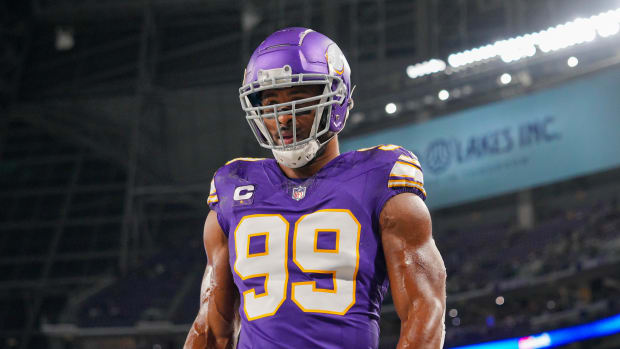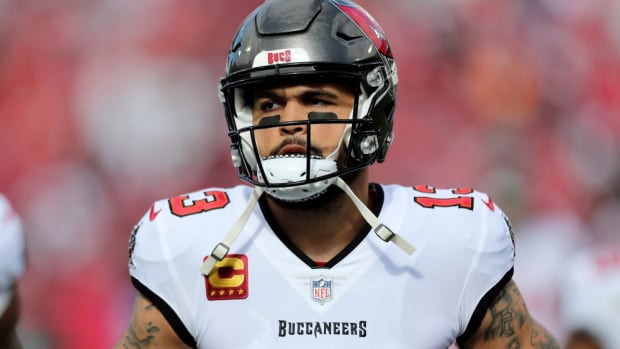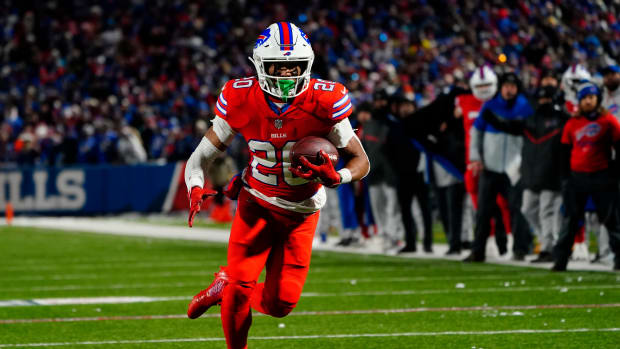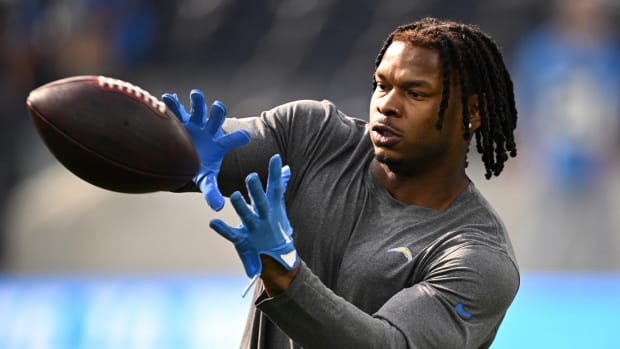
Clear Eyes. Full Heart. Can't Lose?
(John W. McDonough/SI)
SAN DIEGO — There has been so much talk over the last five weeks about Philip Rivers’ bolo ties, snakeskin boots and outsized personality that we’re almost ignoring something very important: The 10-year veteran is playing outstanding football.
Since throwing an interception in a 17-10 loss to Cincinnati on Dec. 1, the last time San Diego was defeated, Rivers has thrown 10 touchdowns and only two interceptions, has completed 68.3 percent of his passes and has had a passer rating of 104.0 or higher on four occasions.
Previously anxious in the pocket in pressure situations—perhaps because he desperately wanted to make a play, or maybe because he subconsciously didn’t trust his teammates—he’s now combining a sense urgency with a heightened level of composure. Even when the pocket does collapse or his receivers are covered, there isn’t the air of foreboding that shrouded him and the Chargers in recent years.
It’s one reason people shouldn’t write off San Diego entering Sunday’s AFC Divisional playoff at top-seeded Denver. Another is that the Chargers have won four of their last five at Sports Authority Field at Mile High, including a 27-20 decision on Dec. 12. In that game Rivers led the offense to points on five of its eight possessions, excluding kneel-downs to end each half. During the team’s current five-game win streak the offense has scored on 28 of 50 possessions, excluding clock-killing kneels at the end of halves.
It’s a dramatic departure from that loss to the Bengals, which left the Chargers 5-7 and clinging to the playoff ledge by their fingernails. In his office that afternoon coach Mike McCoy asked me how the other teams in the playoff race had fared. Then he paused and said flatly: "Someone is going to get in at 9-7. We just have to win out."
I wrote it off as coachspeak—the winning out, not the 9-7 by someone—but he proved me wrong. His QB is a major part of the reason why. Rivers has flourished in a new quick-passing attack after six years of seven-step drops and vertical passes under Norv Turner. Despite only 17 more pass attempts than last season, he had 40 more completions and 872 more yards. The change also allowed him to protect a line that was constantly in a state of flux because of injuries.
[si_video id="video_54F45142-035F-8C36-2450-65B963ED0095"]
Rivers still has the Southern drawl, the "golly gee" vernacular and the boyhood enthusiasm, which was on display when he visited the NFL Network on-field set after beating the Broncos five weeks ago. He was so animated, it seemed he was going to let out a primal scream and challenge Howard Dean for the Most Infamous Celebration title. But there is something different about him. He has a quiet (not a word normally associated with him) intensity to him this season.
In previous years he seemed to feel the pressure of playing in the shadows of Eli Manning, Ben Roethlisberger and Drew Brees. Manning and Roethlisberger, the quarterbacks selected immediately before and after him in the 2004 draft, have combined to win four Super Bowls in five appearances; and Brees, who was replaced by Rivers in San Diego, has a Super Bowl victory in his only trip.
Rivers has always said he isn’t motivated or affected by their success, but at times it felt like he was trying to convince himself as much everyone else. Former teammate Lorenzo Neal told me last year: "Let me tell you right now, he’s going to say the politically correct things because that’s what you have to do as a player, but Philip Rivers is burning inside. Ben Roethlisberger has gone to three Super Bowls and won two. Eli Manning has gone to two Super Bowls and won both. Philip hasn’t been there—and the Giants didn’t have half the talent the Chargers did (at one point). So Philip Rivers as a leader and a quarterback, if (that Rivers isn't motivated by his peers' success) is what he’s selling, I’m not buying. I’m kind of shocked that I would hear Philip say that. I know Philip. He’s a competitor. You see him on the field, how animated he is, how frustrated he gets. He wants to win a Super Bowl, trust me. This is his legacy."
His playoff legacy entering this year was a 3-4 record, 58.5 completion percentage, eight touchdowns, nine interceptions, and a 79.2 rating. After speaking to Rivers throughout the season, however—and watching him after the Wild-Card win over the Bengals Sunday—legacy doesn’t appear to be on his mind. He’s living in the moment, his mind uncluttered with outside storylines.
It’s the the first time I’ve had that feeling with him. He looks like someone playing with house money. He knows that no one expected the Chargers to reach this point; they got into the playoffs partly because the officials, according to the league office, missed a call that would’ve set up Kansas City for a winning field goal in the season finale that ultimately would have put Pittsburgh in the tournament instead. He knows that Peyton Manning, who threw for a league-record 55 scores, is on the other sideline.
But he and his teammates also know that Manning has been more Clark Kent than Superman in his career against the Chargers, with a 7-6 record, including 0-2 in the postseason. They know that Manning has had eight one-and-dones in the postseason, including last year as the No. 1 seed. They know that Denver is without its best defensive player, linebacker Von Miller, who tore a knee ligament in December. And they know that Rivers is as comfortable at Sports Authority Field, where he’s 6-2 and has completed 64.5 percent of his passes for 2,001 yards, 13 scores and seven picks, as he is in his bolo tie and snakeskin boots.


































